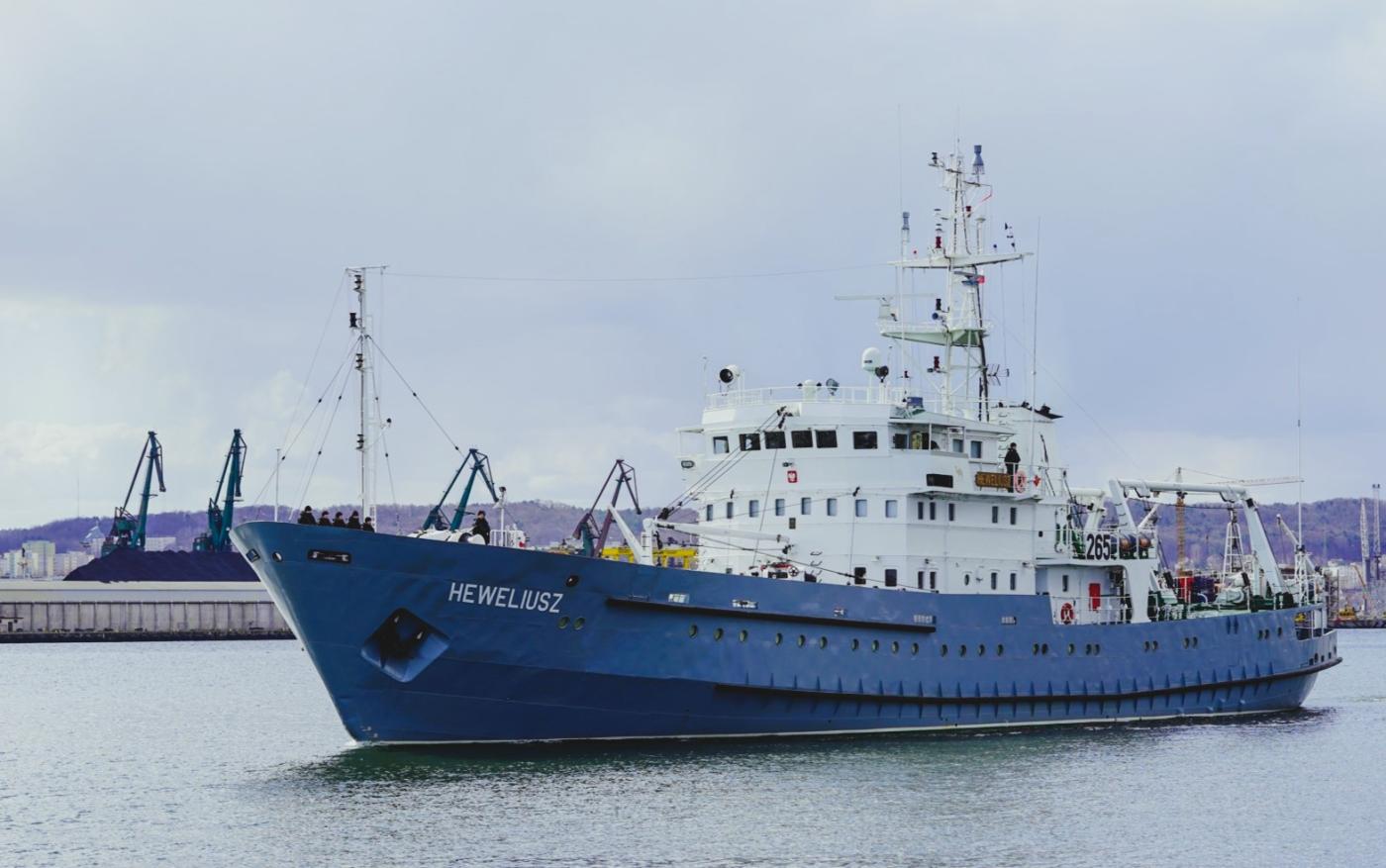Suspicious maneuvers by sanctioned Russian tanker near Baltic power link spark Polish military response
A Russian vessel from the so-called “shadow fleet” — a network of tankers operating outside conventional tracking systems and often under international sanctions — was observed conducting suspicious maneuvers near the critical undersea power cable connecting Poland and Sweden. The incident prompted a swift response from Polish defense authorities.
security navy nato pomerania tricity news21 may 2025 | 17:07 | Source: Gazeta Morska | Prepared by: Kamil Kusier | Print

fot. Marynarka Wojenna RP
- The Russian vessel from the ‘shadow fleet’, under international sanctions, was performing suspicious maneuvers near the power cable linking Poland and Sweden. Following a successful intervention by our military, the ship departed for one of the Russian ports. ORP Heweliusz is en route to the site, announced Polish Prime Minister Donald Tusk.
Polish Defense Minister and Deputy Prime Minister Władysław Kosiniak-Kamysz offered further operational details:
- Yesterday, our services monitored a tanker from the 'shadow fleet' maneuvering close to the power cables connecting Poland and Sweden. The vessel was located outside Poland's Exclusive Economic Zone. In the evening, a naval aviation patrol aircraft from the Naval Aviation Brigade was dispatched to the Baltic region. The crew established contact with the ship, informing it that its actions were being closely monitored. The vessel subsequently left the area and headed for a Russian port.
In response, the Polish Navy deployed the hydrographic vessel ORP Heweliusz, currently operating in the area to assess potential risks to undersea infrastructure.
- The ship's mission is to inspect the designated area and ensure the safety of critical infrastructure. The Polish Armed Forces are making every effort to ensure that the country’s security is not compromised in any way, added Kosiniak-Kamysz.
Shadow fleet, clear signal
While no direct damage was reported, the proximity of a sanctioned Russian tanker to high-value cross-border energy infrastructure raises red flags in both military and energy security circles. This episode adds to a growing pattern of shadow fleet activity near sensitive maritime zones in the Baltic Sea — a region increasingly regarded as a frontline in the geopolitical contest between Russia and NATO.
Experts caution that such maneuvers may be intended to test detection thresholds, map critical infrastructure, or send political signals under the guise of civilian maritime traffic. The swift and coordinated response by Polish forces reflects a heightened state of readiness in the face of hybrid threats targeting both military and civilian domains.
The Baltic Sea, often referred to as NATO’s “internal lake,” is rapidly becoming a theater for strategic signaling. Incidents like this underscore the urgent need for tighter surveillance, joint maritime operations, and resilience-building around critical infrastructure.
As Russian unconventional tactics evolve, allied maritime security strategies must keep pace — with vigilance extending well beyond national waters.
see also
Buy us a coffee, and we’ll invest in great maritime journalism! Support Gazeta Morska and help us sail forward – click here!
Kamil Kusier
redaktor naczelny
comments
Add the first comment
see also
"Let everyone know we will prevail". Poland’s armed forces set strategic course for 2026-2039
“Army 500” and strategic transformation: Poland sets the course for long-term deterrence and allied readiness
Medical evacuation from offshore vessel in the Baltic. Rescue 511 helicopter and m/s Huragan deployed
Karol Nawrocki: “The strength of the republic lies in its armed forces”. Security requires national unity
Human trafficking, money laundering, millions frozen. Successful operation by border guard and tax administration
Evening SAR operation in the Baltic. Two kitesurfers stranded offshore
Medical evacuation from sailing ship in Gdynia port. 17-year-old safely transported
Medical evacuation from Danish-flagged vessel Skoven off Łeba. Joint SAR operation in the Baltic Sea
Almost 2.5 million travellers cleared in 2025 by the Maritime Border Guard
Frontex officers train with Polish Maritime Border Guard
ADVERTISEMENT
ADVERTISEMENT